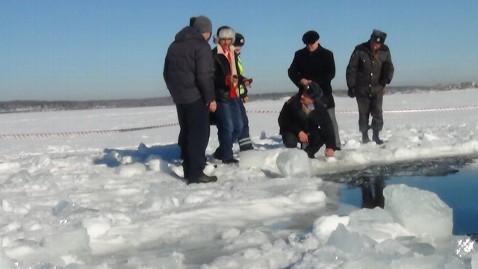Mindy McCready, the country singer who soared to the top of the charts with her debut album, "Ten Thousand Angels," but struggled with substance abuse, served time in jail and fought a lengthy battle with her mother over custody of her son has died of what appears to be a self-inflicted gunshot wound, police said. She was 37.
Deputies from the Cleburne County Sheriff's Office were dispatched to a report of gun shots fired at McCready's Heber Springs, Ark., home at around 3:30 p.m. today.
There they found McCready on the front porch. She was pronounced dead at the scene from what appeared to be a single self-inflicted gunshot wound, according to a statement from the sheriff's office.
McCready's boyfriend, David Wilson, died in January of a self-inflicted gunshot wound. McCready was ordered to enter rehab shortly after Wilson's death, and her two children, Zander, 6, and 9-month-old Zayne were taken from her. She was released after one day to undergo outpatient care.
McCready scored a number-one Billboard country hit in 1996 with "Guys Do It All the Time," but in recent years, the country crooner has received more media attention for her troubled personal life than her music.
She has been arrested multiple times on drug charges and probation violations and has been hospitalized for overdoses several times, including in 2010, when she was found unconscious at her mother's home after taking a painkiller and muscle relaxant.
Angela Weiss/Getty Images
Her mother, Gayle Inge, was appointed to be her son Zander's legal guardian in 2007 after McCready was arrested for violating probation on a drug-related charge. The boy's father is McCready's ex-boyfriend Billy McKnight.
Following a custody hearing in May 2011, McCready released a statement, saying, "We have progressed in a positive manner to reunite me and my son, Zander. I feel very optimistic this will happen in the near future."
But just six months later, in November 2011, was accused of violating a court order for failing to bring Zander back to her mother in Florida after a visit. The boy was placed in foster care while McCready and her mother worked out the custody dispute.
McCready's struggle with substance abuse was broadcast in 2010 on the third season of "Celebrity Rehab with Dr. Drew."
McCready also claimed to have carried on a decade-long affair with baseball star Roger Clemens that began was she was 15 years old and he was 28. Clemens denied that the relationship was sexual in nature.
"You know what, I don't think I'm ever going to be one of those people that has a normal, quiet existence," McCready told ABC Radio in 2010. "I've been chosen for some reason to be bigger and larger than life in every way. Negative and positive."
McCready, who was born and raised in southern Florida, moved to Nashville when she was 18 to start her music career.
Within a few months, she was starting to work with producer David Malloy, who got her tapes to RLG Records. The company signed her to a contract after seeing her in concert, giving her a record deal less than a year after her arrival in Nashville.
Her debut album, "Ten Thousand Angels," went gold within six months of its release in April 1996, and eventually went multi-platinum. Two more followed: "If I Don't Stay the Night," in 1997; and "I'm Not So Tough" in 1999.
Her most recent album, "I'm Still Here," featuring new versions of her early hits "Ten Thousand Angels" and "Guys Do It All the Time," was released in March 2010.










